#Lithuanian men
Text

Jonas Pinskus
#suitdaddy#suiteddaddy#suit and tie#men in suits#suited daddy#suited grandpa#suitedman#suit daddy#buisness suit#daddy#suitfetish#suited men#silverfox#suitedmen#suited man#Lithuanian man#Lithuanian men#Jonas Pinskus
124 notes
·
View notes
Text
jamaican guy tried talking me up while i was at work today. I thought we were just having a convo about tattoos and stuff and then he pulls out a 'you're so beautiful' and i think wow what a nice thing to say when i haven't showered in 24 hours and my current hairstyle (shaved) makes me look an awful lot like the stereotype of a lesbian in prison. you know. like a clueless fool. and then he asked for my number and i go ahh and tell him no, politely, and that i'm not looking to date so he tries to go for the 'not even friends?' and i say no i don't like people. well he shook my hand and said he'd see me around and that it was nice talking to me so
i've a history of being cluelessly rizzed by foreign men, it would seem
#spiced#something about my lithuanian irish swagger makes the non american men go oh i gotta get a piece of that#apparently
0 notes
Note
do you think he is hot?

He's really cute UwU. I can see why people think he's hot, but to me, he looks like my distant relative, so
youtube
Yeah, definitely my distant relative 💪💪💪
#Lithuania#TOP hot Lithuanian men competition#his family must be partially Ukrainian with these eyebrows /hj
1 note
·
View note
Text
my olympics suggestion is that they should have an event where they draw two random teams and a random sport from a hat or something so you have like. the chinese women's skateboarding team and the lithuanian men's shooting team competing in a field hockey match
4K notes
·
View notes
Text
cigarette or zoot? (pt. 1) | joost klein x f1! driver (fem!reader)
in which london and smoking are synonymous with meeting a cute dutch artist
------------------------------------------------------

when AVROTROS approached her about eurovision, she thought they made a mistake. max was dutch. she wasn't. her lithuanian roots were deeper than any other identity she could've carved for herself. in the end she agreed; going in their cars with max around the city of malmö, visiting a few eurovision parties and most importantly, interact with joost klein (whom she didn't know, mind you) and teach him how to use an F1 simulator. this was going to be a heavy week. thank god it was in a month, right now she had a race to win.
first came the party - london was a welcome destination for the young driver. she thrived under the busy nature of it even in what some would call late, and others early, hours. she couldn't say the same for crowds though, the moving mosh of strangers all too close to each other and trying to show their superiority (the latter was aimed at men to be fair). she did see silvester, and the two had a lengthy conversation that didn't come to a conclusion but rather stayed at "what the fuck, let's make lithuania internationally famous!" she had hoped for a good place in eurovision, if not victory, while silvester (silvestras sounded more like home) had voiced his wish for her to win the upcoming miami grand prix and not only become the first female to do so, but also the first from lithuania. the pressure was on.
unfortunately, she lost silvester after getting a drink, so what really was the point of staying in the now airless room? she grabbed her drink and went to the rooftop that really should've been closed. her short frame slumped against a railing and she lit a cigarette, making it a point to hold it between her thumb and index finger. it was quiet, and london shimmered in different shades of yellow and white. so many people, some praying, some arguing, some alone. it felt peaceful despite the harsh wind that threatened to put out her cigarette.
"cigarette or zoot?" an accented voice sounded out, breaking the howls of wind. she turned around, spotting a man in what would've been a formal outfit had it not been for the pyramid-shaped shoulder pads on his blazer. joost klein, the man she was meant to interact with in front of cameras later that month. "cigarette," she answered, "though they call them something else here," she finished with an unsure smile. "i thought we couldn't bring tobacco in here?" he questioned, with a miscievous undertone in his voice. "they didn't check me, so it's on them," the driver shrugged, "why? you want one?"
"god, yes please!"
she took out another one from her pack, put it in between her glossed lips (joost thought that the gloss suited her) and lit it before giving it to the dutch man. "you know, i once tried eating a cigarette," he started, earning an incredulous look from the shorter girl. "what? did it taste good?" her curiosity was cute, "what do you think?"
"i once nearly swallowed jet fuel," she said with sympathy, "i get it."
joost knew who she was, well vaguely. the only female formula 1 driver and the only lithuanian on the grid. so why did AVROTROS want him to interact with her in addition to her dutch teammate? by that point, the wind had calmed down, an eery silence on brink of errupting had it not been for the music blasting from downstairs. she hummed a few lyrics before he spoke up, startling her heart as if she'd forgotten that he was indeed still there.
"can i take a picture of you right now?"
"why?"
"you're pretty. you look really beautiful in this moment, and i want to capture it."
she thought for a moment. "okay, if you let me take one of you after." he smiled. (he was so going to convince her to be on the cover of his next album)
------------------------------------------------------
note: jumping on the joost klein bandwagon (hehe been a fan for a while! got tickets for his europapa tour so i've been riding on cloud 9). i also love formula 1 and so thought why not combine them?
as the first paragraph indicates there will be (probably short and sweet) chapters and maybe extra ones after if this goes well <3
377 notes
·
View notes
Text
How often do men think about the Polish Lithuanian Commonwealth?
229 notes
·
View notes
Text
I want to make information on Lithuanian folklore in English more public so I am uploading the threads that until now were only on my Twitter. I present to you a comprehensive thread on aitvarai, the ancient Lithuanian deities of the skies
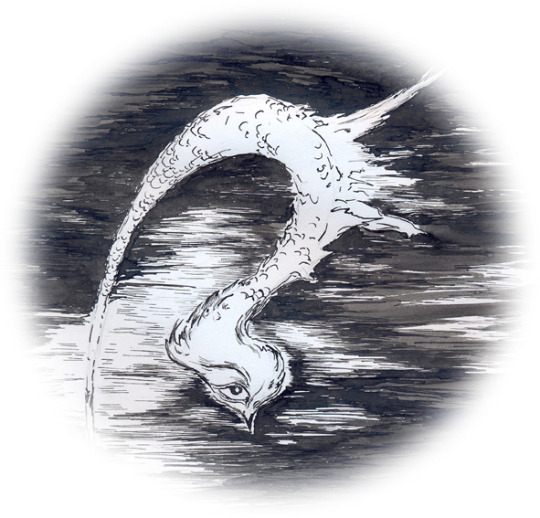
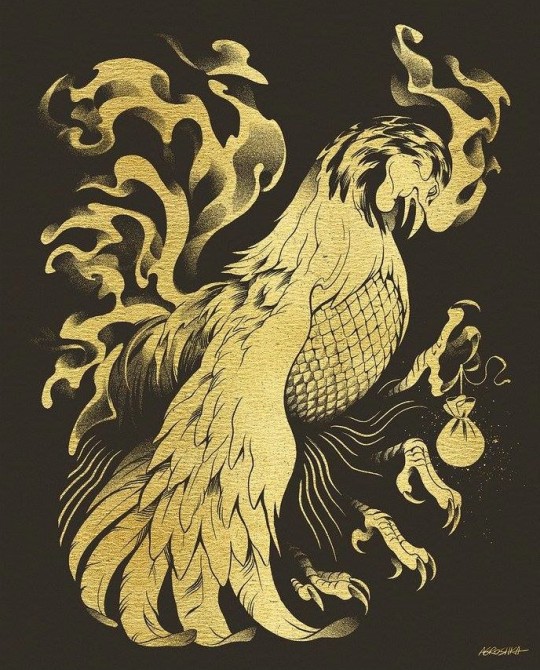
(art credits: Neringa Meškauskaitė, Agroshka )
Aitvarai (etymologically "ones to appease" or "irrepressible force") are domestic creatures associated with all 4 elements: a comet of fire which harnesses wind for chaos, helping Earth and its people while being chased and punished by Perkūnas for stealing water.
Most commonly a black rooster, they can appear as a variety of creatures: different kinds of black birds, grass snakes, whirlwinds, comets and even men if they fall in love with a woman that they want to marry.
Though very powerful ancient beings, Aitvarai choose to associate themselves with people, with villagers being able to either hatch them from an egg of a 7 year old rooster or attract them by leaving out hot, untouched meals like porridge and scrambled eggs.
When part of a household, the duties of an aitvaras were to bring riches to his caretakers, either as money (money carrying aitvarai were golden, deep red or silver in coloration) or as wheat (grey and black colors). Note that aitvarai only served the poor, tricking the wealthy people who tried to use them.
Aitvarai were both a blessing and a curse: while they did bring wealth, they did it by stealing from the neighbors of their master, making them most hated in the local village. They were also clingy and dangerous to keep, burning down the houses of those who mishandled them by feeding them manure, tampering with their meals or disobeying the rules they set for the person.
It is said however that their thieving, evil nature was a characteristic given to them by the Catholic church, which wanted to demonize every pagan creature in Baltic mythology.
In fact, aitvarai were considered genuine problems by those who believed that they would steal from them: from warding off statuettes in granaries to court cases from 1700's accusing people of harboring an aitvaras (I found only one source claiming this, so take it with a grain of salt).
However, the desire to have an aitvaras was apparent as well, shown by modifications peasants would make to their homes: holes in the doors of granaries would be made so an aitvaras could enter the home easily.
Some rituals for stealing back from a flying aitvaras exist as well, ranging from simply showing it your bottom, to cutting oneself with a rusty knife, pinning the corner of your jacket to the ground, ripping or otherwise ruining clothing.
Even if the reaction of people to them was mixed, aitvarai were considered pests by the gods due to their tendency to drink/hoard water, for which they were struck dead by Perkūnas, exploding into sparks that caused forest fires, the thunder god's lightning forming ponds, holes and swamps, terraforming the earth.
#lithuania#mythology#folklore#lithuanian folklore#lithuanian mythology#aitvaras#aitvarai#eastern europe#Viltės threads
167 notes
·
View notes
Text
NAKSHATRAS AS GODDESSES
1/27
🐎ASHWINI🐎
DISCLAIMER: This is based solely on my research and the patterns that I saw. I can't promise that I'm gonna be sure in all the coorelations, but I'm going to attribute each nakshatra a goddess that I think fits it the closest. If you're dissapointed, to make up for it, I'm going to list some other deities in the end that I think also fit the nakshatra. Don't come for me if you think I'm wrong, be respectful in the comments if you think so and have fun 🤍
While researching, at first it was obvious that no deity was as perfect for Ashwini as Ashwini Kumaras themselves. I still tried to search for a Goddess that would be most similar to this nakshatra's energies and I kid you not, I've found the exact goddess I was looking for. Definitely was not expecting this.
Saule
Pronounced "sow-lay"
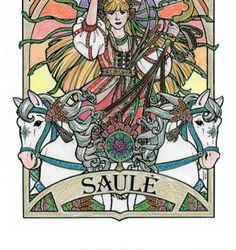
Pantheon: Lithuanian
Name meaning: The sun
Main associations: The Sun, fertility, healing, helping women and children, red apple, gold.
Symbols: The Sun, apples, colors gold and red.
The Baltic people believed the Sun to be a disc, dancing and rolling around. Saule is the literal representation of the sun, who, not unlike the Greek god Helios, rides a chariot pulled by two horses. The horses are mostly described as white and sometimes golden, and they're called, believe it or not, the Asviniai. It seems that the word has an Indo-European root.
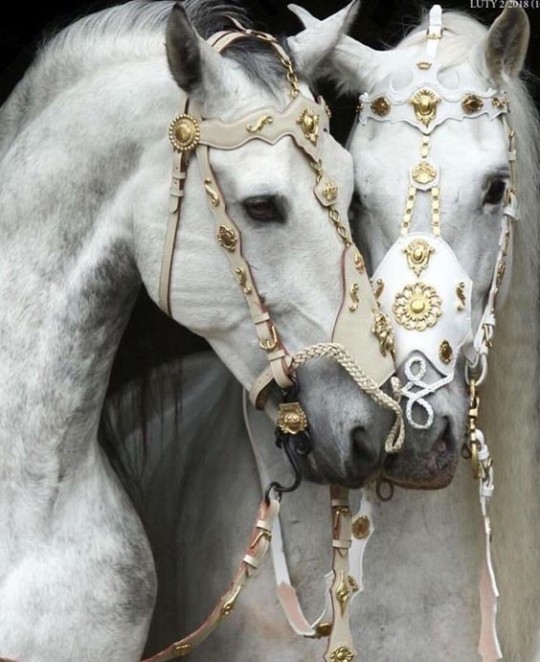
The deities assigned to Ashwini are Ashwini Kumaras_twin horsemen, depicted as young, healthy and handsome men who can heal people.

Like their power, Saule is associated with healing, regeneration and also fertility. She rides in her copper-wheeled carriage with her trusted horses, flying through the sky every day, bringing light and warmth to Earth. In regards to her appearance, she's frequently depicted with long golden hair, as well as being associated with gold and amber in general. She's described as being dressed in golden silk. Being the goddess of health and vitality, she had horses that would never tire nor sweat.
At night Saule would bathe her horses and go to the underworld. She was married to the moon god Menesis. Their first child was Earth, then followed other children: the Stars. It's said that her husband was very carefree, sometimes sneaking out of their castle in his moon carriage, thus leaving the world to darkness. Despite having a husband, ultimately, Saule is a sovereign and independent goddess.
As the setting sun, Saule is known as the falling red apple, a ring or a crown. She's strongly associated with the color red, and also apples and apple trees. Other plants associated with her are daisies, sunflowers, roses and linden.
Saule is honored every year at summer solstice.
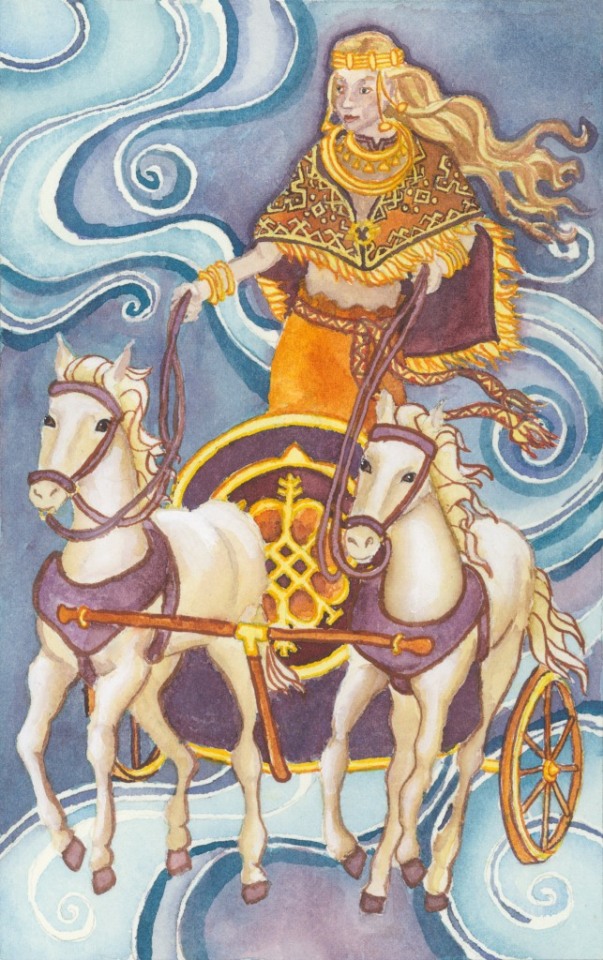
I want to talk a little about why I coorelated her to Ashwini but first, I'll talk about the goddess extremely similar to her- Norse goddess Sol/ Sunna. She's also associated with the sun, healing, regeneration and has a chariot pulled by two horses, one of which is called Allsvinn (very fast), the other is called Arvak (early rising). Also, one of her many names literally means "Gold".
I think the association of these goddesses with Ashwini kumaras is clear, but I chose the Baltic goddess saule as to me the Baltic culture is more similar to Ashwini's energies than the Norse (You'll definitely see Norse goddesses in this series tho). Baltic people also have gods which are basically their equivalent of Ashwini Kumaras, twin horsemen gods called Ašvieniai. It's crazy to me that two cultures that you wouldn't think have anything in common basically share a deity.
Other deities that can be associated with Ashwini other than Saule:
Sunna- Norse goddess of the Sun, healing and fertility.
Ašvieniai- Baltic twin horsemen gods who have a gift of healing
Rhiannon- Celtic goddess known as "The Horse Queen", goddess of movement, leadership, the night, the moon and death.
Epona- Celtic goddess most strongly linked to horses (and you can tell by her name)
That's it for Ashwini🤍❤ I love my horse- people😅🤍 I genuinely do, there's no one like you guys, you are very healing and refreshing to be around. Keep going 🐎🐎
Don't forget to comment if u liked this or you can interact in any way .
#ashwini#ashwini nakshatra#baltic mythology#saule#goddess saule#nakshatras#vedic astrology#ashwini kumaras#sun goddess#sun in ashwini#moon in ashwini#ascendant in ashwini#moon in ashwini nakshatra#sun in ashwini nakshatra#ascendant in ashwini nakshatra#ketu in ashwini#ketu in ashwini nakshatra
108 notes
·
View notes
Text

Alfonsas Daniūnas
#suitdaddy#suiteddaddy#suit and tie#men in suits#suited daddy#suited grandpa#suitedman#suit daddy#suited men#suitedmen#suitfetish#daddy#silverfox#suited man#silver fox#suits#Lithuanian man#Lithuanian men#Alfonsas Daniūnas#Alfonsas Daniunas
24 notes
·
View notes
Text

South-Eastern Poland, December, 1662 - three teenage girls of different faiths form a short-lived but memorable travel friendship
(from the left: a Tatar mercenary's sister, an Arian refugee and the daughter of a travelling Karaite Hakham. history notes under the cut)
the Arians, or Socinians, or as they called themselves, the Polish Brethren, were a radical branch of protestantism that constituted one of many religious minorities of the Polish-Lithuanian Commonwealth. their doctrine rejected many foundational Calvinist doctrines (such as predestination, divine nature of Christ, the trinity, etc) and preached principles of pacifism, separation of church and state, and equality between the genders. during the 1660s, when Poland-Lithuania was under attack by protestant Sweden, Arian men were banished from the country under threat of death - in 1662, the law was expanded to include Arian women, too. the Polish Brethren would not survive as a religious movement after exile.
Karaites are an ethnic and religious group of (most likely) Semitic origin, which have formed communities in Eastern Europe as far back as the 10th century. the Karaite faith split from Rabbinic Judaism probably around the 1st century bc. Karaims don't recognise Oral Law as legitimately binding and spiritual leaders/scholars, called Hakhams, have more of an advisory than authoritative role. Karaite communities in the Commonwealth suffered exceptionally heavy losses in the 1650s as a result of armed conflicts. today there are around 340 Karaites living in Poland and 200 or so in Lithuania, where the Karaim language is now used for liturgy, as opposed to the traditional Hebrew. despite the Karaite people Semitic origin, the Karaim language emerged in Crimea, from the Turkic language family, being derived from the now-extinct Kipchak - Karaim shares this origin with Tatar, Siberian Tatar and Crimean Tatar.
Tatar is an umbrella term for many different ethnic groups originating from 12th century Mongolia. Tatar settlers, polytheistic as well as Muslim, first came to Lithuania in the 14th century. as they started to be an integrated ethnic & religious minority of the Commonwealth, they came to be known as Lipka Tatars. their contribution to Polish-Lithuanian history mostly has to do with warfare, in which the conflicts of the 1600s are an important episode. today, there are 10-15 thousand Lipka Tatars in Poland, Lithuania and Belarus. (speak Polish? check this out!)
#oh clothes are inaccurate? try finding references for 17th century female clothing of a rural eastern european ethnic minority. try it.#ask box Open. goodnight.#eelart#history#17th century#PL
81 notes
·
View notes
Text
1100 words written today -- I feel like this scene is still a mess, but it's getting down on paper and once that's done I can work with it. I can tell that this scene, at least, is dealing with one of my usual problems, which involves putting Natasha back into the scene as something other than an observer. also this is a 13K chapter so even if it's been like pulling teeth, there are actual words in it.
Snippet from Of Home Near chapter 17.
“Wait,” Tony said, “if your dad is the Red Guardian, and he’s real, and you’re with Rogers, does that mean that thing about women liking men who remind them of their fathers is – ow!” He shot a betrayed look at Pepper, who must have kicked him under the table.
Steve’s eyebrows climbed.
Yelena leaned over and whispered in Natasha’s ear in Russian, “I told you so,” which got another raised eyebrow from Steve. Yelena shot him a speculative look, realizing that he had understood the remark; she clearly hadn’t expected him to know Russian.
“All right,” she added in the same language, “maybe he’s at least as smart as Alexei.”
“Spasibo,” Steve said dryly in his Lithuanian-accented Russian. “Flattered to hear it.”
“God, you never lost that accent?” Bucky demanded; his Russian, the Winter Soldier’s Russian, was flawless, with a slightly old-fashioned Moscow accent to the words, like some of the older ex-KGB officials Natasha had known.
“Never had to use it enough to bother,” Steve said, still in Russian, blinking once; Natasha realized abruptly that he must not have ever heard Bucky speak Russian before. “And it drove Aleksey Lebedev crazy, so, you know, plus side.”
“Where does Captain America even get that accent?” Yelena demanded.
Steve shrugged. “Brooklyn.”
Yelena gave Natasha a disbelieving look; she shrugged in response.
“What the hell are you guys talking about?” Tony demanded. “Speaking in tongues and all that?”
Steve’s gaze lifted and he said in English, “They’re making fun of my accent.”
“Since when do you speak Russian?”
“Since 1931,” Steve said.
18 notes
·
View notes
Photo
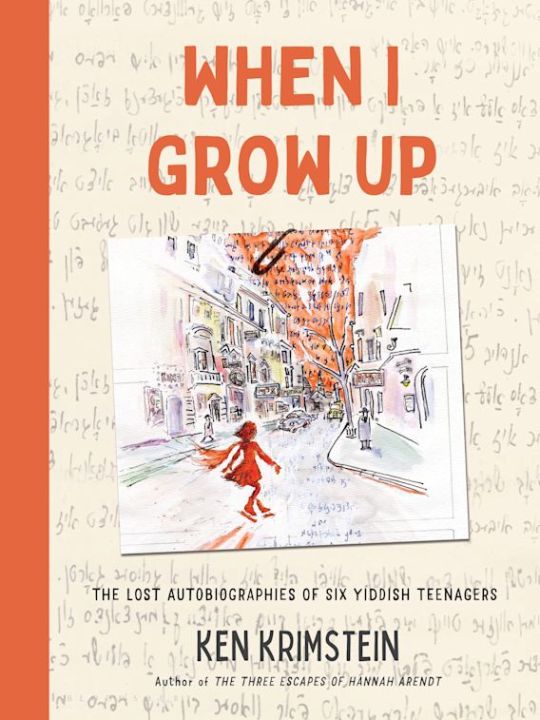
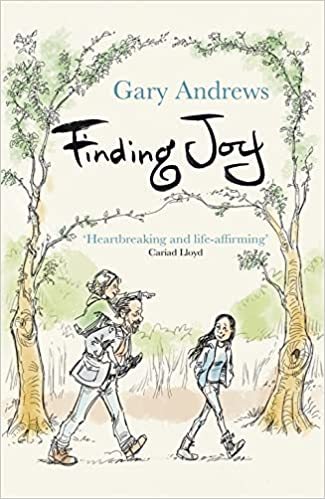
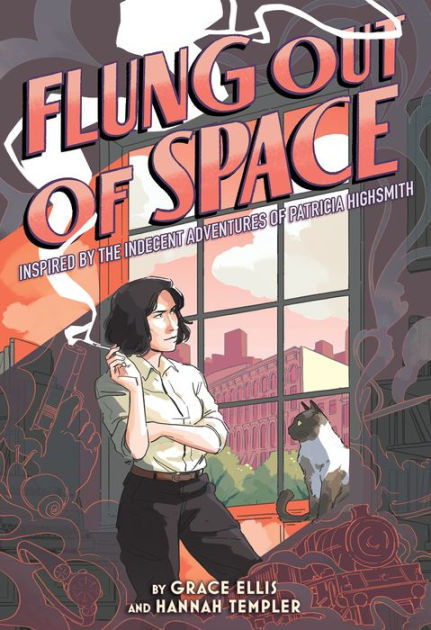

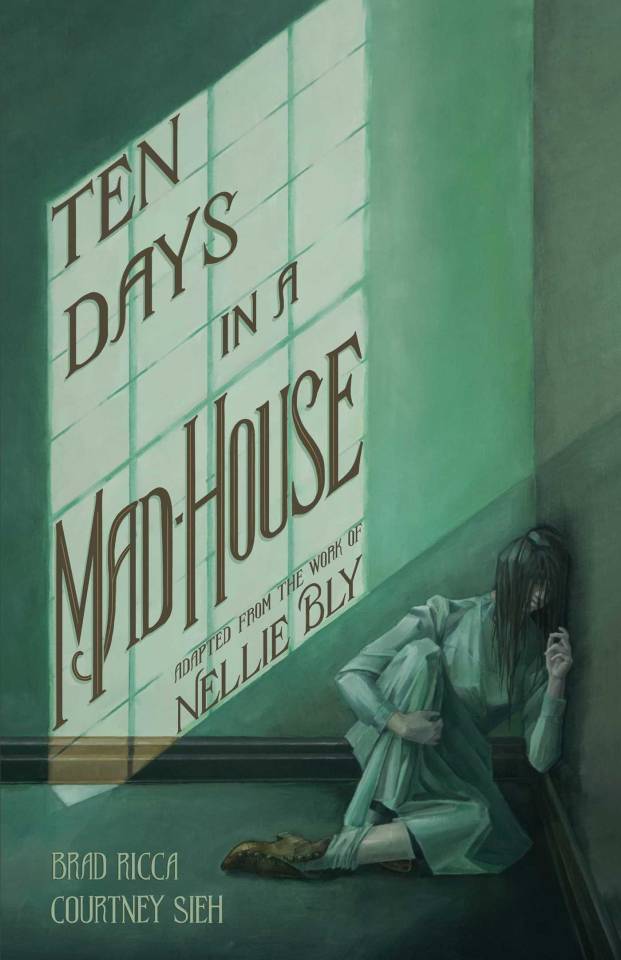
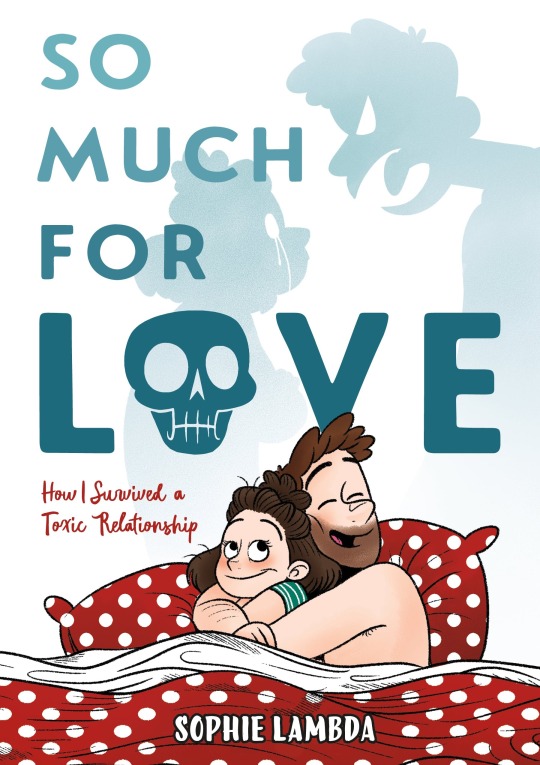
Favourite Non-Fiction / Bio Graphic Novels of 2022
When I Grow Up: The Lost Autobiographies of Six Yiddish Teenagers
by Ken Krimstein
When I Grow Up is New Yorker cartoonist Ken Krimstein’s new graphic nonfiction book, based on six of hundreds of newly discovered, never-before-published autobiographies of Eastern European Jewish teens on the brink of WWII—found in 2017 hidden in a Lithuanian church cellar.
These autobiographies, long thought destroyed by the Nazis, were written as entries for three competitions held in Eastern Europe in the 1930s, just before the horror of the Holocaust forever altered the lives of the young people who wrote them.
In When I Grow Up, Krimstein shows us the stories of these six young men and women in riveting, almost cinematic narratives, full of humor, yearning, ambition, and all the angst of the teenage years. It’s as if half a dozen new Anne Frank stories have suddenly come to light, framed by the dramatic story of the documents’ rediscovery.
Beautifully illustrated, heart-wrenching, and bursting with life, When I Grow Up reveals how the tragedy that is about to befall these young people could easily happen again, to any of us, if we don’t learn to listen to the voices from the past.
Finding Joy by Gary Andrews
When his wife, Joy, died very suddenly, a daily drawing became the way Gary Andrews dealt with his grief. From learning how to juggle his kids' playdates and single-handedly organising Christmas, to getting used to the empty side of the bed, Gary's honest and often hilarious illustrations have touched the hearts of thousands on social media. Finding Joy is the story of how one family learned to live again after tragedy.
Flung Out of Space by Grace Ellis & Hannah Templer
A fictional and complex portrait of bestselling author Patricia Highsmith caught up in the longing that would inspire her queer classic, The Price of Salt
Flung Out of Space is both a love letter to the essential lesbian novel, The Price of Salt, and an examination of its notorious author, Patricia Highsmith. Veteran comics creators Grace Ellis and Hannah Templer have teamed up to tell this story through Highsmith’s eyes—reimagining the events that inspired her to write the story that would become a foundational piece of queer literature.
Flung Out of Space opens with Pat begrudgingly writing low-brow comics. A drinker, a smoker, and a hater of life, Pat knows she can do better. Her brain churns with images of the great novel she could and should be writing—what will eventually be Strangers on a Train— which would later be adapted into a classic film by Alfred Hitchcock in 1951.
At the same time, Pat, a lesbian consumed with self-loathing, is in and out of conversion therapy, leaving a trail of sexual conquests and broken hearts in her wake. However, one of those very affairs and a chance encounter in a department store give Pat the idea for her soon-to-be beloved tale of homosexual love that was the first of its kind—it gave the lesbian protagonists a happy ending.
This is not just the story behind a classic queer book, but of a queer artist who was deeply flawed. It’s a comic about what it was like to write comics in the 1950s, but also about what it means to be a writer at any time in history, struggling to find your voice.
Author Grace Ellis contextualizes Patricia Highsmith as both an unintentional queer icon and a figure whose problematic views and noted anti-Semitism have cemented her controversial legacy. Highsmith’s life imitated her art with results as devastating as the plot twists that brought her fame and fortune.
My Brain is Different: Stories of ADHD and Other Developmental Disorders by MONNZUSU
In this manga essay anthology, follow the true stories of nine people (including the illustrator) navigating life with developmental disorders and disabilities.
This intimate manga anthology is about the struggles and successes of individuals learning to navigate daily life with a developmental disorder. The comics follow the stories of nine people, including: a junior high dropout finding an alternate path to education; a former "troublesome" child helping kids at a support school; a so-called problem child realizing the beauty of his own unique quirks; and a man falling in love with the world with the help of a new medication. This book illustrates the anxieties and triumphs of people living in a world not quite built with them in mind.
Ten Days in a Mad-House by Brad Ricca, Courtney Sieh, Nellie Bly
Beautifully adapted and rendered through piercing illustrations by acclaimed creators Brad Ricca and Courtney Sieh, Nellie Bly’s complete, true-to-life 19th-century investigation of Blackwell Asylum captures a groundbreaking moment in history and reveals a haunting and timely glimpse at the starting point for conversations on mental health.
“I said I could and I would. And I did.”
While working for Joseph Pulitzer’s newspaper in 1887, Nellie Bly began an undercover investigation into the local Women’s Lunatic Asylum on Blackwell Island. Intent on seeing what life was like on the inside, Bly fooled trained physicians into thinking she was insane—a task too easily achieved—and had herself committed. In her ten days at the asylum, Bly witnessed horrifying conditions: the food was inedible, the women were forced into labor for the staff, the nurses and doctors were cruel or indifferent, and many of the women held there had no mental disorder of any kind.
Now adapted into graphic novel form by Brad Ricca and vividly rendered with beautiful and haunting illustrations by Courtney Sieh, Bly’s bold venture is given new life and meaning. Her fearless investigation into the living conditions at the Blackwell Asylum forever changed the field of journalism. A timely reminder to take notice of forgotten populations, Ten Days in a Mad-House warns us what happens when we look away.
So Much for Love: How I Survived a Toxic Relationship by Sophie Lambda
Part memoir, part self-help book, So Much Bad For Love guides readers with honesty and humor through how to spot, cope with, and ultimately survive a romantic relationship with a malignant narcissist.
Sophie had always been cynical about love—until she meets Marcus. His affection and doting praise melt away her defenses. The beginning of their relationship was a whirlwind romance, but over time she finds herself on uneven footing. Marcus lies. He's violently angry and bewilderingly inconsistent. Yet somehow he always manages to explain away his behavior and to convince Sophie that it's all in her head. Sophie comes to realize that she's become trapped in a cycle of abuse with someone with narcissistic personality disorder.
Once she gets out of the relationship, Sophie documents the experience in this bracing, hilarious, and empathetic graphic novel that's full of advice to readers who may be in similar straits.
#book rec#book recs#comic#graphic novel#manga#autobio#biography#nonfiction#books about real people#and real people are often flawed
371 notes
·
View notes
Text
Nachman Abramovich in Siberian heavy labor gulag, 1941.
He was one of the 3000 Jewish people from Lithuania: among whom were doctors, teachers, businessmen, and common laborers, exiled to Siberia with tens of thousands Lithuanians and other nationalities in June of 1941, most dying from harsh conditions.
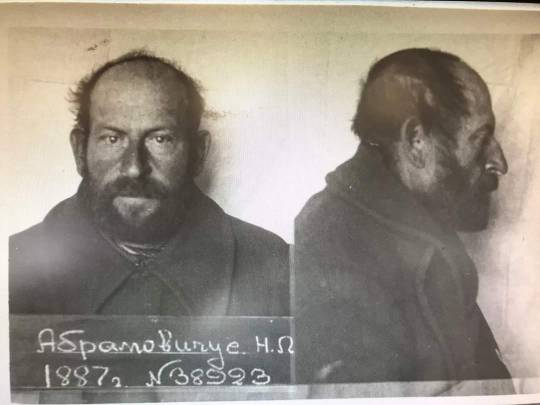
That's just in case you thought Soviets/russians were somehow less antisemitic.
Edit - more about Nachman:
He owned a hotel in the city of Taurage and got exiled because of it with his wife and 3 children. He was separated, as most men were, and sent to heavy labor gulag while his wife and kids were sent to Komya.
Ironically, he's the grandfather of russian oligarch Roman Abramovich.
118 notes
·
View notes
Text
Black Wings at Midnight
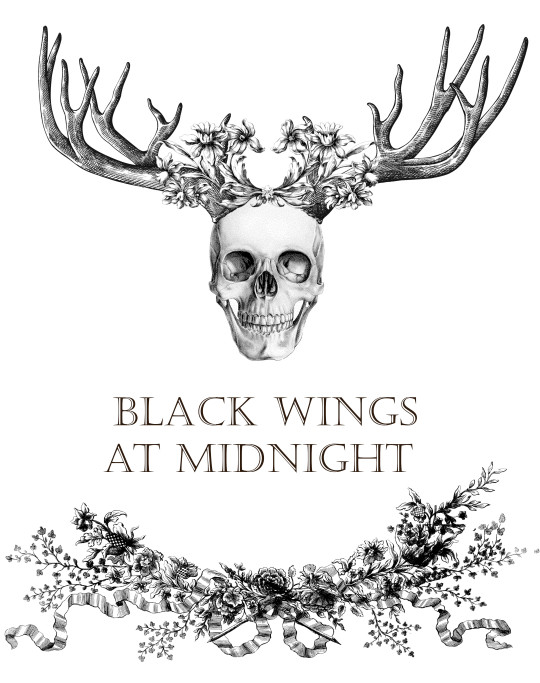
Shyly sharing my first Hannibal fanfic: a reimagining of Seasons 1-3 set during World War II in Britain. It comes complete with vintage-style illustrations and links to suggested listening (ranging from Handel to 1940s' swing).
See below for the summary, and under the cut for an extract.
When former detective Will Graham is pulled away from his intelligence work at Bletchley Park in 1942, to consult on a hauntingly familiar crime scene, he feels alive for the first time in years. But when his life begins falling apart, he finds himself thrown into a complex dance of trust and suspicion with the man assigned to help him: an aristocratic Lithuanian flying ace and peacetime psychiatrist, whose intentions are anything but clear…
If you do decide to give it a read, I hope you enjoy it, and would love it if you took the time to leave a comment. Hearing people's expectations and thoughts as they read has been the most enjoyable part of sharing this online. Thank you all, and sending hugs from London.
From Black Wings at Midnight: Chapter 3
‘May I come in?’
The voice is deep, with a warm lilt of an Eastern European accent. Crawford’s eyes brighten and he rises from the desk with what Will considers unseemly haste.
‘Aha! Now here’s a familiar face. Come in, come in, old chap. Pull up a chair. This is Will Graham, who I mentioned on the phone. Brilliant mind. Brilliant.’
Will scowls at the praise and turns in his chair, prepared to be combative. He has no great love for the airmen of the RAF. They are nothing more than overgrown public schoolboys, with their chummy nicknames and their maverick flair. In their presence, Will feels his carapace stripped away, exposed as an awkward provincial with a clumsy accent, a different breed from these sauntering gods of the sky.
The newcomer does little to dispel his prejudices. The flattering RAF uniform makes most men look good, but this fellow seems to have stepped straight out of an advertisement. J.C. Leyendecker in the flesh, Will thinks bitterly, feeling short, and dark, and rustic.
Nothing about this man is rustic: dark blond hair parted with almost surgical precision; a broad chest and shoulders beneath the blazon of the RAF wings; trousers ironed to crisp perfection; tie perfectly centred. Everything about him screams money, from the scent of his cologne to the small gold signet ring just visible on his little finger.
After spending long hours digging into the minds of the Nazi commanders, Will can’t resist a snort. Good God, how they would love you!
Light brown eyes linger on Will for a moment, already looking amused.
‘Good afternoon, Mr Graham. I apologise for interrupting your colloquy, but Jack is an old friend. I was delighted to hear he was visiting us. May I?’ He gestures to the unused chair before the desk and Will raises a shoulder minutely, neither inviting nor repelling. He settles for glaring across at Jack. He doesn’t wish to spend any longer here than necessary, and he certainly doesn’t want to play third wheel to some back-slapping reunion.
‘Will,’ says Jack, ‘this is Flight Lieutenant Hannibal Lecter – or should I say Dr Lecter?’ The two men exchange a twinkle of camaraderie and Will stifles a desire to stab the table with his pencil. ‘We met before the war,’ Jack continues. ‘Dr Lecter has a private psychiatry practice on Harley Street, and helped us with a profile for the Bethnal Green Killer in ’38.’
Will remembers the case. It wasn’t long after he’d been signed off, still gathering together the shreds of himself in the nursing home. He allows himself a glance sideways.
‘Strange to swap the comforts of Harley Street for a wet field in Hampshire, Dr Lecter. Get tired of listening to rich old ladies?’
‘I “got” patriotic,’ Lecter says gently. ‘My country was invaded last year. Lithuania,’ he adds, for Will’s benefit. ‘I have not lived there for many years, but old affections still linger: a sense of duty, if you will. I learned to fly when I was younger’ – Of course you did, thinks Will bitterly – ‘so why not put my skills in the service of my adopted country?’
‘And he’s become quite the terror,’ Jack says cheerfully. ‘Give him a Spitfire and he’s absolutely fearless. They say Göring’s offered a bounty to anyone who brings him down.’ He dismisses Lecter’s gesture of modest denial and turns back to Will. ‘When I heard he was stationed here, I thought it’d be helpful to have his thoughts – and his support too, of course.’
‘Convenient,’ Will says under his breath, studying his fingers. He feels Lecter’s eyes lingering on him with something that’s uncomfortably close to satisfaction. For a moment he entertains himself, wondering whether he loathes fighter aces more or less than psychiatrists. It comes out as a balance. The airmen are more irritating, but he has bitter personal experience of his own with psychiatry.
‘Come now, Jack,’ Lecter says, ‘you are not being completely honest with Mr Graham.’ He leans a little closer, offering Will a lungful of his expensive cologne, and his voice drops, as though this is a secret to be shared between them. ‘Jack has asked me to have a few conversations with you before you start on this case. Just to help prepare your armour for the field of battle, as it were.’
Will’s eyes snap up to Jack Crawford, who has the grace to look embarrassed.
‘Will, I’ve read your files. It’s my job to make sure you’re fit for duty. I want to help you in any way I can.’
‘I don’t find it helpful to be covertly psychoanalysed!’
‘This is not psychoanalysis,’ Lecter says placidly into the awkward silence, ‘merely a common interest. You have nothing to fear, Mr Graham. Besides,’ he adds, straightening his cuffs, ‘I am not a psychoanalyst. Freud may have some interesting principles, and Jung has made many valuable insights into my field, but I do not ride under their banner. Biological psychiatry is very different from asking you to tell me your dreams.’ Dark eyes dart up and catch Will’s just as he makes the mistake of looking up. Something coils in the pit of his stomach. ‘Though I have no doubt your dreams must be a fascinating place.’ …
‘Just a conversation,’ Will hears himself say.
‘But of course.’ Lecter shrugs in a Gallic fashion. ‘And we can give dear Jack a good night’s sleep. Just a conversation or two among friends.’
‘Associates,’ Will snaps back. Lecter laughs as if he has said something delightful.
‘God forbid we should become friendly. Come with me to the mess, Mr Graham. Let’s get some tea.’
Will feels wrong-footed. He wants to prod; to offend; to get under Lecter’s skin and force him to feel even the faintest echo of Will’s crippling discomfort. He feels like a parcel passed from Jack to Lecter, a fragile curiosity to be wrapped in cotton wool and discussed in lowered voices. He feels lonely and patronised, and because, to his deep-seated disgust, he finds himself wanting Lecter to like him, Will lashes out.
‘I doubt we’ll be friends, Dr Lecter. I don’t find you that interesting.’
A hand falls on his shoulder. To Jack, frowning in his chair, it’ll look comradely, a way to show that no offence has been taken. To Will, the touch is unsettling: part warning, conveyed through the grip of fingers far stronger than he’d anticipated; and part protective caress. I don’t, Will repeats doggedly in his head, find you interesting.
‘Ah,’ Lecter says softly in his ear, ‘but you will.’
23 notes
·
View notes
Photo
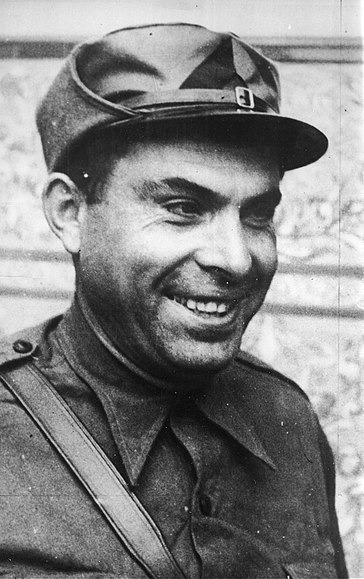
On this day, 14 July 1896, legendary Spanish anarchist and civil war fighter Buenaventura Durruti was born. At the age of 14 he left school and began training as a mechanic in a railway yard. In 1917 he took part in a strike which was crushed by the army who killed 70 workers, injured over 500 and imprisoned 2000. He later joined the Confederación Nacional del Trabajo (CNT) union, fought against the dictatorship of Miguel Primo do Rivera and was forced into exile, where he travelled to Latin America, where he undertook bank robberies in Chile and Argentina to fund the workers' movement. Durruti later returned to Spain, and with the right-wing military rising of general Francisco Franco, he joined the fighting in Barcelona, during which the coup attempt was crushed and CNT workers took over the city. He then headed a column of 3000 revolutionary militia members and travelled to the Saragossa front to fight the nationalists. Lithuanian Jewish anarchist Emma Goldman asked him how, with no military training, he was leading thousands of fighters. He replied: "I have been an anarchist all my life. I hope I have remained one. I should consider it very sad indeed, had I to turn into a general and rule the men with a military rod. They have come to me voluntarily, they are ready to stake their lives in our antifascist fight. I believe, as I always have, in freedom. The freedom which rests on the sense of responsibility. I consider discipline indispensable, but it must be inner discipline, motivated by a common purpose and a strong feeling of comradeship." Durruti and his column later came to Madrid to defend the city which was under attack, during which he was killed. His body was transported back to Barcelona where half a million workers took to the streets to attend his funeral. Learn more about the Spanish civil war in our podcast episodes 39-40: https://workingclasshistory.com/podcast/e39-the-spanish-civil-war-an-introduction/ https://www.facebook.com/photo.php?fbid=661459119360640&set=a.602588028581083&type=3
131 notes
·
View notes
Text
Polish Holocaust-era Jewish memoir translations
"There were rumors that she sometimes entertained German officers in her well appointed apartment" = She was a prostitute.
"She was a good girl. Young and pretty. She had a very particular way with the younger German officers and we knew we could trust her to bring us information useful to our movement" = Yeah she fucks the Germans for safety but she hates them and can spy for us.
"In the conditions of such destruction, our typical moral attitudes left us. People became desperate for any closeness; they were not long for this world, they figured, best not to spend these last days alone." = Literally everyone was fucking and making no attempt to pretend that they weren't
"Yet, despite everything, we were still young, idealistic people. Normal relations existed between men and women. Love blossomed, relationships formed." = WE HAD SEEEEEEEXXXXX
"I will not speak of what some of these women were forced to do for the survival of themselves and sometimes, their families. I know, however, that, afterwards, it lay heavy on their conscience." = Yes, your mother had sex in exchange for bread. You better fucking appreciate it.
"She was beautiful. None could have known that she was Jewish. The young German and Lithuanian soldiers flocked to her. At times, out of gallantry, these same young men would sometimes conceal this pretty young woman from inspectors, even helping her lift her bags full on contraband" = She was hot and men helped her lift suitcases full of guns onto trains because she was hot and also smarter than them.
"He was young and idealistic; a dreamer, a poet. When he spoke, all the room seemed to tremble in anticipation of his words." = he was a slut
Post brought to you by: 23 year old me asking my MA advisor about sex and sexuality in women's Holocaust diaries/memoirs/autobiographies and her being like "well they didn't talk about it..."
61 notes
·
View notes